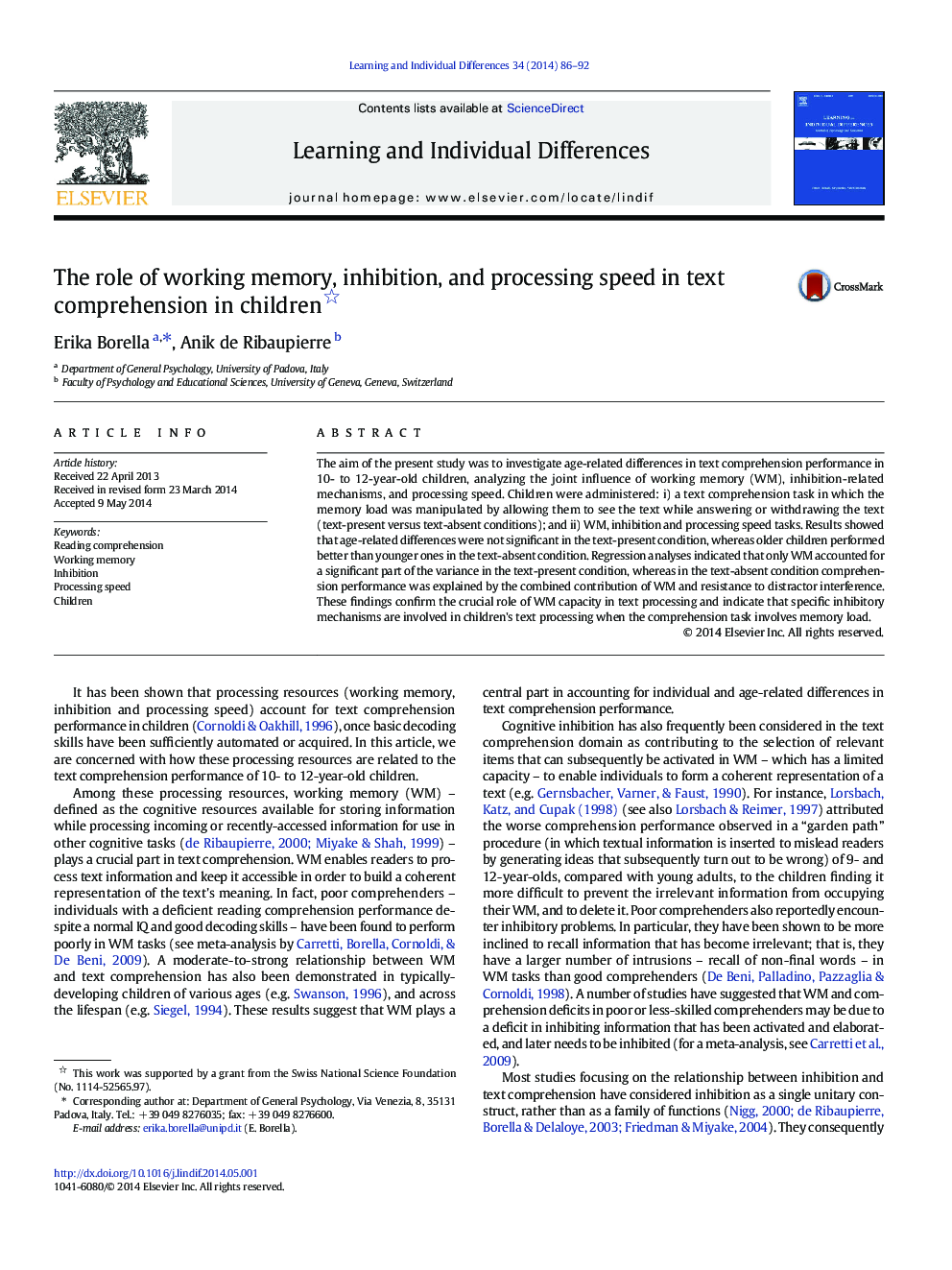| Article ID | Journal | Published Year | Pages | File Type |
|---|---|---|---|---|
| 364785 | Learning and Individual Differences | 2014 | 7 Pages |
•Children's text comprehension (TC) performance depends on text presentation mode.•Working memory (WM) accounts for children's TC performance.•Inhibition and WM explain TC performance only when a memory load is imposed.
The aim of the present study was to investigate age-related differences in text comprehension performance in 10- to 12-year-old children, analyzing the joint influence of working memory (WM), inhibition-related mechanisms, and processing speed. Children were administered: i) a text comprehension task in which the memory load was manipulated by allowing them to see the text while answering or withdrawing the text (text-present versus text-absent conditions); and ii) WM, inhibition and processing speed tasks. Results showed that age-related differences were not significant in the text-present condition, whereas older children performed better than younger ones in the text-absent condition. Regression analyses indicated that only WM accounted for a significant part of the variance in the text-present condition, whereas in the text-absent condition comprehension performance was explained by the combined contribution of WM and resistance to distractor interference. These findings confirm the crucial role of WM capacity in text processing and indicate that specific inhibitory mechanisms are involved in children's text processing when the comprehension task involves memory load.
